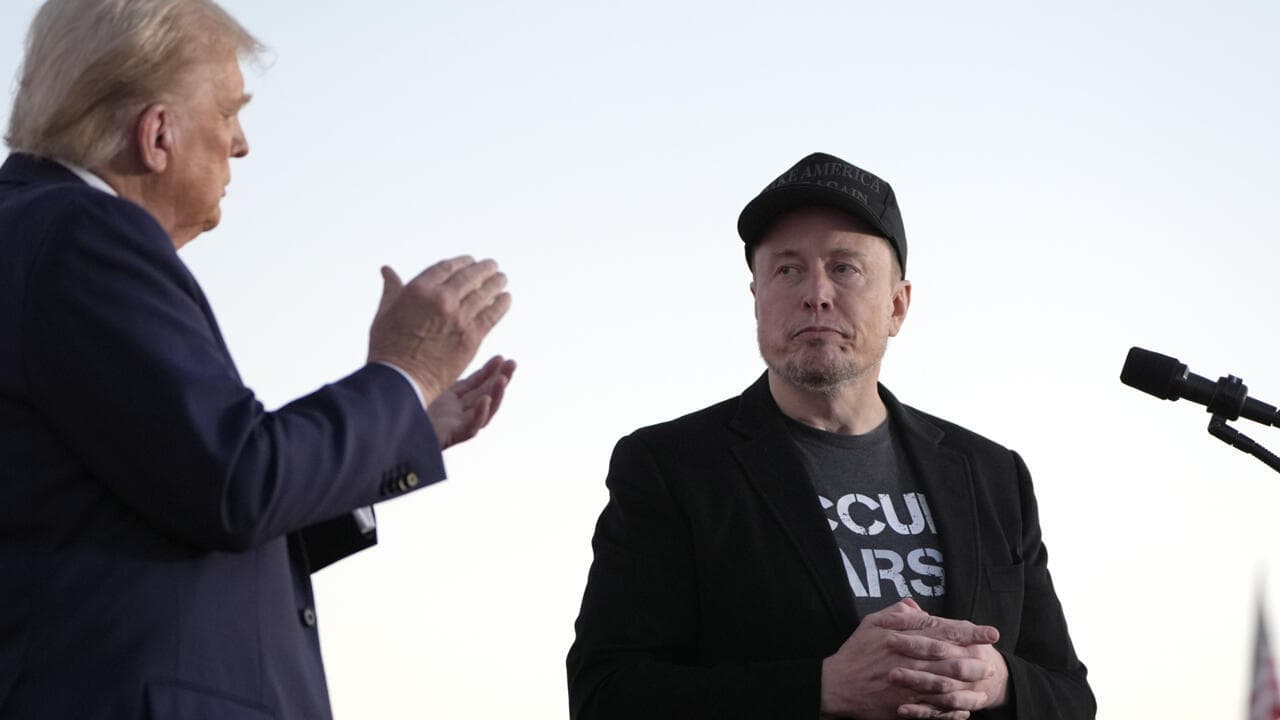Tesla CEO Elon Musk won shareholder approval on Thursday for the largest corporate pay package in history, as investors endorsed his vision of turning the electric vehicle maker into an artificial intelligence and robotics juggernaut.
The proposal was approved with over 75% support, and Musk bounded onto the stage of the company’s annual meeting at its factory in Austin, Texas, accompanied by dancing robots.
Musk, already the world’s richest person, could receive as much as $1 trillion in stock over the next decade, although required deductions would take the value down to about $878 billion. The vote is crucial for Tesla’s future and valuation, which hinge on Musk’s vision of self-driving vehicles, a U.S.-wide robotaxi network, and mass-market humanoid robots — even as his far-right political rhetoric has damaged the Tesla brand this year.
“What we are about to embark upon is not merely a new chapter of the future of Tesla, but a whole new book,” Musk told cheering shareholders.
Shareholders also re-elected three directors to Tesla’s board and voted in favour of holding annual elections for all board members, as well as approving a replacement pay plan for Musk, since a legal challenge has delayed a previous version.
“Other shareholder meetings are like snoozefests, but ours are bangers,” Musk said. “I mean, look at this. This is sick.”
Shareholders additionally voted to allow Tesla to invest in Musk’s artificial intelligence startup, xAI, though many abstained.
Although some raised conflict-of-interest concerns over Tesla’s potential investment in xAI, the move is widely seen as mutually beneficial, as Tesla’s self-driving ambitions depend on AI expertise and xAI would gain a major customer in Tesla.
A win for Musk was widely expected, as the billionaire retained the full voting rights of his roughly 15% stake after Tesla moved its incorporation from Delaware to Texas. Some major investors opposed the plan, including Norway’s sovereign wealth fund and proxy advisory firms Glass Lewis and Institutional Shareholder Services, warning that the package could dilute shareholder value.
Tesla's board argued, however, that Musk might have quit if the package was not approved.
The vote eases investor concerns that Musk’s focus has been diluted by his political involvement and other ventures, including SpaceX and xAI. The board and many investors who supported the plan say the record-setting pay package aligns Musk’s incentives with long-term shareholder value, as he must achieve a series of performance milestones to receive payment.
“Will the growth offset these concerns of dilution – or is this just giving Elon his wish of enough influence to shape the future of AI? That remains to be seen,” said Brian Mulberry, a senior client portfolio manager at Zacks Investment Management.
Under the plan, Musk’s decade-long goals include delivering 20 million vehicles, putting 1 million robotaxis in operation, selling 1 million robots, and generating up to $400 billion in core profit. But for him to collect, Tesla’s market value must climb first to $2 trillion — from its current $1.5 trillion — and eventually to $8.5 trillion.
Each milestone achieved, both operational and valuation-based, would grant Musk 1% of stock. The plan could still reward him with tens of billions of dollars even if he falls short of some targets.
If all targets are met, Musk would be eligible for a 12% stake in stock — worth about $1 trillion. The true value of those shares would be around $878 billion, as the package only compensates Musk for increases in the company’s value. The structure grants him up to $1 trillion in shares, minus the stock’s value when the board approved the plan in early September. Musk could pay that amount in cash or accept fewer shares to offset the original value.
The ultimate value of the package will fluctuate with Tesla’s stock price.
Musk has said he is more interested in the additional voting power the deal gives him than the money itself, as he prepares to launch what he called a “robot army.”

